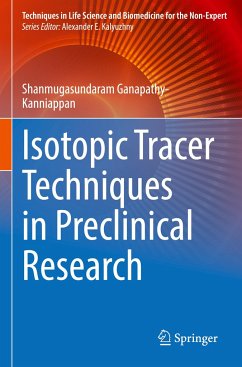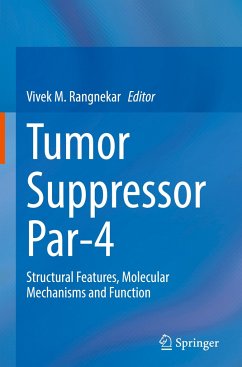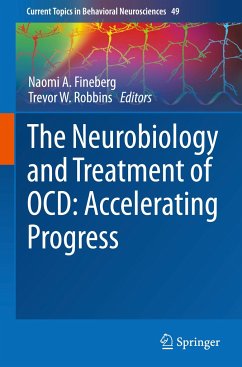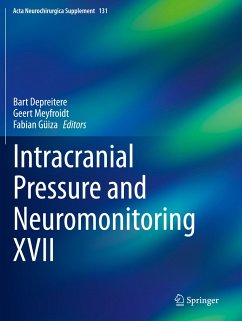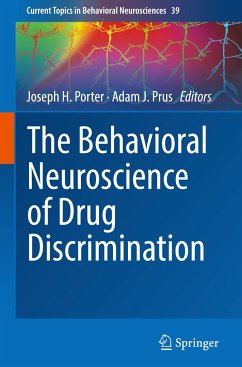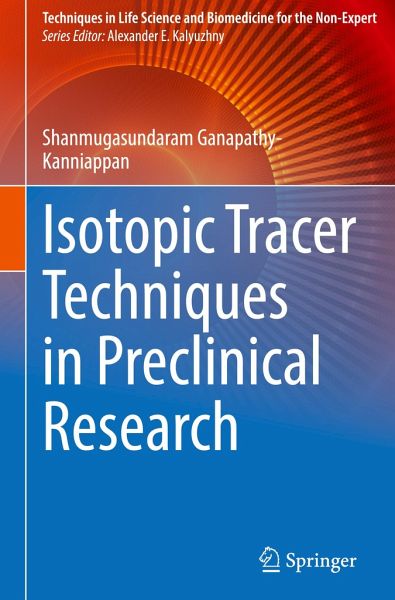
Isotopic Tracer Techniques in Preclinical Research
Versandkostenfrei!
Versandfertig in 6-10 Tagen
81,31 €
inkl. MwSt.
Weitere Ausgaben:

PAYBACK Punkte
0 °P sammeln!
This book serves as a practical guide and a manual on the application of isotopic tracers in understanding the cellular processes (e.g. molecular interactions, protein synthesis) in growth, development, and disease conditions. The techniques described in the book have been carefully chosen to underscore the role and relevance of isotopic tracers in the identification of molecular targets and mechanisms, and preclinical validation of potential therapeutics. This book is intended to be a valuable resource to non-experts that may include students, researchers, educators/teachers, and others who h...
This book serves as a practical guide and a manual on the application of isotopic tracers in understanding the cellular processes (e.g. molecular interactions, protein synthesis) in growth, development, and disease conditions. The techniques described in the book have been carefully chosen to underscore the role and relevance of isotopic tracers in the identification of molecular targets and mechanisms, and preclinical validation of potential therapeutics. This book is intended to be a valuable resource to non-experts that may include students, researchers, educators/teachers, and others who have an interest to understand the application of isotopic tracers in research. Each chapter includes a background, an outline of the method and underlying principles, and a detailed step-wise protocol. To augment the clarity and intellectual grasp, the chapters also include relevant illustrations and study questions. More importantly, the book covers techniques involving radioactive as well asnon-radioactive tracers to expand the scope of isotopes in preclinical research including basic and applied science.





